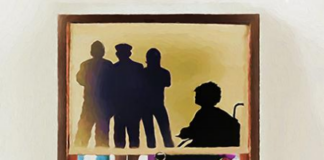Tag: pathologizing
Dual-award Winning Play and Film About Human Beings, not Psychopathology
[M]y play, SHADES, and my film, "Is Anybody Listening?" are about people who have experienced major troubles, even trauma or other tragedies, who have dark secrets that torment them, but who use connection, love, humor, and creativity to come through, even to heal. And no one in the play or the film is pathologized.
Antidepressants Often Prescribed to Enforce Heteronormativity, Study Concludes
A new study investigating fifteen years of patient records at a Midwestern hospital found that psychiatrists almost always responded to patient complaints about their relationships by prescribing antidepressants, despite the fact that these complaints had little to do with the DSM criteria for depression. The study’s lead author, Jonathan Metzl, a professor of Sociology and Medicine, Health and Society at Vanderbilt, suggests that after the decision in 1974 to remove homosexuality from the DSM, psychiatry continued to enforce socially accepted forms of relationships through the prescription of antidepressants.
Novelist on ADHD: “Being Different is Not an Illness”
On Sunday, the front page of the UK’s Independent ran a story entitled, “Thousands of children are being medicated for ADHD – when the condition may not even exist.” Fiction novelist and author of the upcoming “Concentr8,” William Sutcliffe, writes, “The pharmaceutical/medical industry teaches us that whatever the problem, a pill is the answer.” “This notion is becoming so all-powerful, and so locked together with a pressurised, exam-centred, conformist educational system, that every parent who has a misbehaving or inattentive child may now find themselves pushed towards a diagnosis of ADHD.”
How Can Professionals Learn to Reduce Fears of Psychotic Experiences Rather...
The kinds of experiences we call psychotic are often incredibly scary: people feel they are being persecuted by strange forces, or that their brains have been invaded by demons or riddled with implants from the CIA . . . the list of possible fears is endless, and often horrifying. While standard mental health approaches counter many of these fears, they often create new fears of a different variety. Wouldn’t it be helpful if professionals were trained in an approach that could help people shift away from both dangerous psychotic ways of thinking and also away from the sometimes equally terrifying explanations which emphasize pathology?










